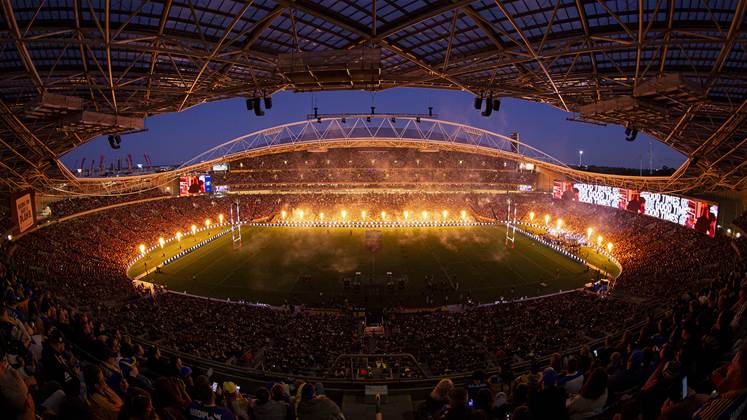Venues NSW is keen to implement AI as it continues to use data analysis to improve live event experiences plus understands the need for real-time action when responding to guest feedback.

The state agency manages and operates NSW’s major sporting and entertainment infrastructure and sees more than 2 million customers over the year across its venues including the SCG and Sydney’s new Allianz Stadium at Moore Park.
Speaking at a recent Sydney Qualtrics X4 event, Matt Baker, general manager for member and customer experience at Venues NSW said, “What's important in live entertainment and sport is it only happens once”.
“We have to make sure that we focus and understand that these important things matter. These events that happen, you can't go and ask to take it back, hit that hit that goal again, we missed it”.
The organisation, which uses the Qualtrics platform to gain customer insights, can receive over 30,000 survey responses and prioritise “the emotional customer journey”.
Speaking to Digital Nation, Baker said he likes the idea of being able to ask a follow-up question about the customer experience and potentially using Qualtrics AI to implement “predictive questions that would give us rich insight”.
“I really liked the idea of being able to then ask a follow-up question and using that AI tool to actually go the ‘parking was bad’. Like, why was the parking bad? Where did it come from?
“Those kinds of predictive questions would give us more rich insight because quite often we don't get that from just a straight-up survey.”
Baker said with more information linking up to its data, Venues NSW can gain deeper insights into the real-time customer journey.
Across Taylor Swift’s The Eras Tour show this past February, Sydney’s Accor Stadium saw upwards of 320,000 fans to see the global pop star.
Through its current platform, the team could respond to customer feedback much faster.
“Take Taylor Swift, we had four shows so we had a whole bunch of data from the first night that we could implement for the second, third, fourth [night],” Baker said.
“We can do that really quickly now whereas before, we were waiting weeks for surveys to go out and come back, now it's straight after the event. People have time to fill it in and get it back to us.
“It's that speed and then being able to pull out just the key insights that we know that have caused drama for people and allow us, our teams on the ground to fix that straightaway, as best they can.”
He said most things “can be fixed with communications” such as transport logistics however, “some of the “physical things we can't change quickly”.
“We need to communicate better to people and go out to all our stakeholders and say, we saw this last night, can we get some messaging out today? It'll improve people's journeys, those kinds of things.”
Baker said the team “deliver events every week” with strong planning, “but as soon as you put a person there, it changes completely”.
The emotional customer journey
Baker said, “That emotional customer journey helps us because it puts it on that timeline and you can see the dips, they're really obvious.”
These “key” points contribute to what a guest’s experience looks like, according to Baker.
“That helps us, but then we also know there are things we can go diving for, like things that aren't necessarily in the experience platform that we know we’ll use.
Such data includes ticket purchasing details, where a person lives and what transportation was taken.
“Bruno Mars is a really good example of that. When we had Bruno Mars at Allianz [Stadium], he did two nights. The first night … we had a lot of feedback on transport, particularly around car parking.
“We're like why are people driving to the show? Because a lot of people don't drive to those shows anymore because we've got light rail and all those things.
“But there was a huge density of people that bought tickets from the Hills and the Hills don't have a great train connection.”
From here, the team were able to push out a targeted message to suggest the best travel timings to plan for traffic and parking.
Baker added the organisation receives “so much data” however, “the real good stuff is all in the verbatim, it's all in the comments”.
“It’s all in there, tell us more about your experience, why did we let you down and what's the one thing we could improve?” Baker said.
Register for our Digital As Usual breakfast event this Wednesday, August 7th at the Establishment Ballroom in Sydney. Click here to register and secure your place.
We'll be hearing insights from across HR, marketing and finance plus unveil our 'Digital As Usual' report.


_(23).jpg&h=140&w=231&c=1&s=0)

.png&h=140&w=231&c=1&s=0)





_(26).jpg&w=100&c=1&s=0)
 iTnews Executive Retreat - Security Leaders Edition
iTnews Executive Retreat - Security Leaders Edition












_(1).jpg&h=140&w=231&c=1&s=0)



